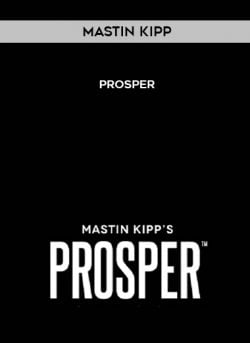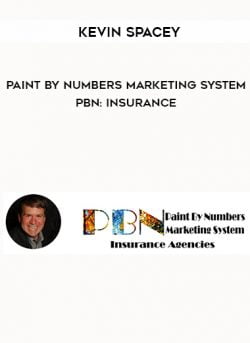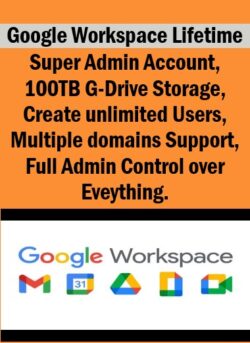Jenny L. Hamby – How to Successfully Market Seminars and Workshops
Original price was: $197.00.$37.00Current price is: $37.00.
Product Delivery – You will receive Content Access Via Email.
Email – Kickmarketers@gmail.com
Description
How to Successfully Market Seminars and Workshops
Introducing the First Step-by-Step Guide to Creating Powerful Seminar Marketing Materials
From Jenny L. Hamby
I recently completed a guide, How to Successfully Market Seminars and Workshops: A Practical Guide for Creating Effective Seminar Marketing Plans and Powerful Promotional Materials, that spells out the step-by-step process I follow when I’m creating marketing plans and promotional materials for my clients.
Since 1998, I’ve been marketing seminars and workshops for consultants, independent speakers, information marketers, not-for-profits and training companies. And in How to Successfully Market Seminars and Workshops, I reveal the very same strategies that allowed me to:
- Help a national financial sales training and consulting company generate a 300% increase in registrations for its top sales management seminar.I was called in because the existing letter-and-flyer direct mail package was pulling so poorly that the company had been forced to cancel several seminars due to low enrollment. With the new self-mailer brochure I created and wrote, registrations more than tripled.
- Help a Chicago-area junior college rescue a certification preparation course for inventory management professionals. With my new marketing plan and materials, registration in the entry-level program more than quadrupled … and more than half of the attendees from the first class completed all seven courses in the series. Best of all, marketing costs for classes #2 through #6 were less than $100 each … while revenue per class never dipped below $5,600.
- Help an international newsletter and e-book publisher generate more than $21,000 in registration fees within 3 weeks – generating a sold-out class and an 840% return on investment
I’ve used these strategies and techniques to market all types of seminars … from how to run a successful business to how to operate an oscilloscope … from web site design to behavior based safety … from power negotiating to Neurolinguistic Programming.
And now you can put these same ideas to work for your seminar.
111 Lessons You’ll Learn in How to Successfully Market Seminars and Workshops
Here’s a comprehensive list of the time-tested secrets I share in this helpful guide. Which ones do you want to learn?
Putting Your Seminar Marketing Plan Together
The three most critical things you should research … before you ever set pen to paper (page 1-1)
Does “research” strike fear in your heart? Don’t worry – you’ll learn the easiest and most cost-effective ways to gather juicy details about your target audience (page 1-3)
If you want to write compelling copy, you must be able to crawl inside your prospects’ heads – learn seven key questions that will help you drill deep into their wants and needs … and convince them that your seminar is the event to attend (page 1-4)
Marketing your first seminar? Here’s the most important thing you can do to begin generating a profit as soon as possible … and avoid repeating expensive mistakes (page 1-5)
How to determine which mailing lists are the best ones to rent again (hint: it’s not what you’d think upon first glance) (page 1-7)
The #1 most cost-effective way to market your event (page 2-5)
Postcards … brochures … sales letter … web sites – if you’re overwhelmed by your marketing choices, don’t worry! Here’s how to determine which marketing media you should use to promote your event (page 2-7)
How to improve your chances of securing the maximum number of registrations (page 2-10)
You don’t have the time or budget to contact each prospect personally. Discover how to prioritize the use of your resources. (page 2-11)
The hands-down best source of prospective seminar attendees (page 2-11)
The two basic types of mailing lists you can rent … and which is best for your situation (page 2-13)
How often you should contact your prospects … and how to handle follow-ups if you’re working with a limited budget (page 2-19)
The three basic components every seminar marketing campaign should have (page 2-21)
One of biggest mistakes made by inexperienced seminar promoters is not giving attendees enough advance warning about your event. Discover how far in advance of your seminar you should send out promotional materials (page 2-22).
An explanation of the types of costs you will incur when creating your marketing campaign (page 3-1)
Your response rate is dependent on many factors … and most are out of your control. Here are the three most important variables you can control and should focus on (page 3-5)
What a “good” response rate is for seminar promotions (hint: it’s not the typical two-percent rule of thumb) (page 3-6)
The right way to calculate your “break even” point (page 3-7)
Marketing on a tight budget? Here are the four most critical elements to include in your marketing plan (page 3-8)
The Key Elements of Successful Seminar Promotions
The truth about what you should name your seminars (page 4-1)
The three elements of copy that are most important for grabbing prospects’ attention (page 4-2)
How to customize your marketing materials to appeal to different audiences (page 4-4)
Three steps to identifying the most important benefits your seminar offers … and how to present them to easily convince prospects that your event is the place to be (page 4-5)
If you want your marketing materials to be a smashing success, you must tell attendees how they’ll benefit – here are the seven best places to work benefits into your copy (page 4-8)
Many marketers assume their prospects will “just know” if they should attend the seminar or workshop being promoted. Not so – you must tell them … and here’s how to do it with greatest effect (page 4-8)
How to name your price without causing sticker shock (page 4-9)
What to include as part of your seminar registration fee … and why it’s best to tell prospective attendees up front what they’ll get when they register for your event (page 4-11)
The two magic words that instantly increase the value of your seminar or workshop (page 4-12)
The right way to use discounted registration fees to increase seminar registrations (page 4-14)
Your goal is to get attendees to pay for their registration fees … learn which types of payment you should accept (page 4-16)
The smart way to offer payment plans and invoicing … so you minimize the chances of getting stuck holding the bag (page 4-18)
Who should handle your telephone registrations? Here’s how to tell (page 4-19)
Whether an online registration option is a “must” for your event … and how to offer this option when money is tight (page 4-20)
The shocking truth about whether you should guarantee attendees’ satisfaction with your seminar (page 4-21)
How to practically eliminate the chances that a seminar attendee will ask for a refund (page 4-23)
The five most common types of guarantees you can use when marketing your seminar (page 4-24)
Surefire strategies for getting prospects off their duffs and picking up the phone to register (page 4-25)
Some seminar promoters gloss over details like when and where, specifically, their events will be held. But without this information, prospects can’t make an informed decision about whether your seminar is right for them. Discover the nitty-gritty details that must be in your brochure to avoid losing registrations (page 4-28)
When and where you should give attendees details about how to get to your seminar location (page 4-29)
Whether or not you should take up valuable space in your brochure to include background information about your seminar or topic (page 5-1)
How to present your seminar content for best effect … so prospects know without a doubt that your seminar will deliver the answers and solutions they’re seeking (page 5-2)
Many marketers just present a brief list of topics when describing what attendees will learn. Learn why this usually leads to empty rooms and requests for refunds (page 5-5)
How detailed you should get when describing what attendees will learn … and how much space in your marketing materials you should devote to this section (page 5-7)
Four steps to creating compelling descriptions of the lessons attendees will learn (page 5-8)
Five additional ways to demonstrate what you’ll teach during your seminar (page 5-9)
Most attendees are convinced that their situation is one of a kind, which makes them wary that your seminar will address their needs. Here are three ways to convince them that your seminar is right for their unique situation (page 5-13)
The five different types of buyers … and to best market to each group (page 6-1)
How to effectively overcome your prospects’ indecision about attending your seminar (page 6-4)
One critical strategy in getting prospects off the fence about whether they should register for your seminar is removing risk from the buying decision. Here are seven easy ways to do it (page 6-7)
Four ways you can let prospective attendees take you for a test drive before they decide whether to register for your seminar (page 6-9)
Nine proven tools for enticing prospects to act now (page 6-10)
How to overcome prospects’ natural skepticism about your marketing (page 6-11)
How to get past attendees to convince prospects to register (page 6-13)
Getting attendees to write good testimonials for you is like pulling teeth … unless you use one of the five proven strategies (page 6-15)
Three time-tested rules for making your testimonials believable (page 6-16)
The eight places best places in your marketing brochure to use testimonials from delighted attendees (page 6-17)
Why shorter is better when it comes to presenting the instructor’s biography … and what information you should leave out (page 6-18)
Five situations when it makes sense to develop an advisory board for your seminar business (page 6-20)
The most important thing you must do if you want to convince prospective attendees that your seminar is worth the money and time they’ll spend (page 7-1)
Where, when and how to best present the registration fee (page 7-1)
How to position your registration fee as an investment … not a budget-breaking expense (page 7-2)
20 low-cost techniques for increasing the perceived value of your seminar (page 7-4)
If you want to generate referrals and repeat sales, you need to ensure that your attendees actually use the information you give them during your seminar. Here are two easy ways to encourage consumption (page 7-8)
Do your prospects have to get the boss to sign off on their participation in your seminar? Here’s how to sell to the Big Cheese and other decision makers (page 7-11)
Which type of satisfaction guarantee is right for you? Here’s how to tell (page 7-16)
The three critical components that your satisfaction guarantee should contain (page 7-17)
Cancellations happen. But how they affect your bottom line depends on how you write and present your cancellation policy. Here are three standard policies to choose from (page 7-19)
What information you should be gathering on your registration form … but that many seminar marketers overlook (page 7-20)
Want to quickly build a list of qualified prospects for your next seminar or workshop? Be sure to ask for these two key bits of information when attendees register for your event (page 7-21)
The #1 most critical section of your registration form that most marketers forget to include (page 7-24)
How to increase the size of your average registration fee … without spending a dime more on marketing (page 7-26)
Holding more than one seminar? Learn how many different events you should promote with one marketing piece (page 7-27)
Four situations where you can safely promote multiple sessions of the same seminar … without reducing class size (page 7-28)
“Jenny, I just finished tearing through your How To Successfully Market Seminars And Workshops System”, and WOW was it great. Not only was it well-designed, concise, and informative, but there were some key benefits I was NOT very familiar with.
”For instance, I thought your content on “post-registration” marketing in Chapter 11 was very important. Most people think once the sale’s over, then your job is done. As you know, nothing can be further from the truth.
”Also, even though I am an experienced marketer, the subject covered on pages 12 and 19, in your Bonus, “How To Build Your Mailing List From Scratch” your tips were DEAD ON, and in fact, represented the lion’s share of sales I made for my recent Maverick Marketers Mastermind Meeting.
”And lastly, your 29-Step Checklist is something I will definitely look at BEFORE I take my next website ‘live.’
”Thanks for all your great suggestions!”
Creating Your Marketing Piece
The #1 biggest factor that determines how successful you’ll be in promoting your seminar (page 8-1)
The two most critical elements of your copy (page 8-2)
How to tell the difference between good copy and bad copy … and how to improve the quality of your copy if it currently stinks (page 8-3)
Three easy steps to creating a compelling list of benefits that entice your prospects and convince them to sign up (page 8-8)
The right way to incorporate jargon, acronyms and other technical language into your copy (page 8-9)
The correct “tone” to take with your copy to grab – and hold – your prospects’ attention (page 8-11)
A sure-fire way to tell if you’re talking about yourself too much … and boring your readers to tears (page 8-12)
Two time-tested techniques for adding punch, power and pizzazz to your copy (page 8-13)
Why you should toss out nearly every rule you learned in high school English class – that is, if you want your copy to sell (page 8-14)
Want prospects to register for your seminar after reading your marketing materials? Here are the types of words and phrases you should avoid in you copy (page 8-15)
A ten-step process for writing the best copy you can … in as little time as possible (8-18)
The order in which you should write your copy to avoid ending on a weak and wimpy note (hint: Starting at the top is usually not a good idea) (page 8-20)
How to blast through writers block once and for all (page 8-21)
Five ideas for improving your copywriting skills (page 8-22)
What elements to include in your lead- and sales-generating ads … postcards … e-mails … sales letters … brochures … websites … fliers … ads … and more (page 9-1)
The most important lesson you must learn about effective graphic design … and why following Madison Avenue’s lead would probably be the kiss of death for your seminar marketing campaign (page 10-1)
The truth about whether you should you design your own marketing pieces (page 10-2)
Four must-have elements of good design (page 10-3)
The six design elements that can make or break your printing budget (page 10-4)
How many colors to use in your design … and which may be best for your messages and audience (page 10-6)
How fonts can affect your message … and which type of font to use in various sections of your seminar marketing materials (page 10-7)
How to properly use formatting – like bold, underline, italics and highlighting – to direct your prospect’s attention (page 10-8)
When to use photos or illustrations … and which type of graphics are best suited for your seminar (page 10-9)
How to create an effective layout that answers the questions that will naturally arise in your prospect’s mind (page 10-10)
The eight most common questions that prospective seminar attendees have … and that you must answer if you ever hope to secure their registrations (page 10-12)
Self-mailer brochures are one of the most popular tools for marketing seminars. Here are the eight most important elements to include on your cover … to ensure prospects open up the brochure and read what’s inside (page 10-13)
The five things your mailing panel should contain … in addition to your return address (page 10-14)
How to set up an easy-to-use registration form (page 10-14)
A call to action – that is, specific instructions telling prospects what you want them to do – are a must-have element of direct-response marketing. Here are six logical places to include calls to action (page 10-16)
Whether hiring a professional graphic designer is a smart move for you … and how to tell if the designer you’re considering has what it takes to produce a compelling design that will produce results (page 10-18)
The two reasons you shouldn’t stop marketing once you get a registration (page 11-1)
Nine ways to prevent buyers regret … and to keep prospects enthusiastic and eagerly anticipating your seminar (page 11-2)
Five ideas for keeping excitement high at your event … and to ensure attendees are having the time of their lives (page 11-3)
The very best time to ask for leads and referrals from current seminar participants (page 11-6)
A simple trick for getting referrals out of attendees who “can’t think of anyone” who would like to attend your seminar (page 11-7)
The single most important thing you must offer if you want to maximize your seminar revenue (page 11-8)
How to put one of Mom’s etiquette lessons to work to generate future sales and referrals from your current seminar attendees (page 11-9)
Four ways you can encourage your seminar participants to actually use and apply the information you teach them (page 11-11)












![[Download Now] Rob Pene - Get More Clients Video Analysis for Leads From Cold Email](https://kickmarketers.com/wp-content/uploads/2024/01/download-now-rob-pene-get-more-clients-video-analysis-for-leads-from-cold-250x297.png)
Angel (verified owner) –
The lessons were clear and easy to understand.
Jason Brooks (verified owner) –
Great value for the price. Highly recommend!
Stephanie Hayes (verified owner) –
I appreciated the real-world examples included in the course.
Heather Edwards (verified owner) –
I enjoyed the hands-on approach of this course.
Dominic (verified owner) –
The instructor’s passion for the subject is contagious.
Melissa Green (verified owner) –
Good quality.